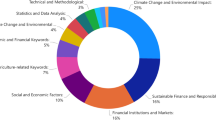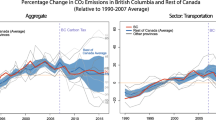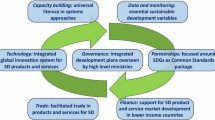Abstract
The political activities of industries associated with the production and consumption of fossil fuels have thwarted state efforts to advance climate policy. Yet research on the role of trade associations that firms use to coordinate their activities remains sparse. Studies of business political activity are generally focussed on the firm level with trade associations typically considered only as part of wider advocacy coalitions. Scholars are still to examine the full range of political activities of trade associations. Using an original dataset built from trade associations’ IRS filings, we find that trade associations engaged on climate change spent $3.4 billion in 10 years on political activities, with the largest expenditure on advertising and promotion, followed by lobbying, grants and political contributions. Our data challenges the prevailing assumptions about the primary political activities of business actors. To explain the variation in spending, we present the findings from a regression analysis and semi-structured interviews. We argue that scholars have for too long failed to account for the political activities of trade associations, which are also one of the most important opponents of climate policies.



Similar content being viewed by others
Data availability
The quantitative data files underlying this article will be made publicly available at publication by request to Dr. Robert Brulle.
References
Aldrich H (2018) Trade associations matter as units of selection, as actors within comparative and historical institutional frameworks, and as potential impediments to societal wide collective action. J Manag Inq 27:21–25
Aldrich H, Staber UH (1998) Organizing business interests: patterns of trade association foundings, transformations, and deaths. Ecol Model Org 111:126
Anderegg W, Goldsmith GR (2014) Public interest in climate change over the past decade and the effects of the “climategate” media event. Environ Res Lett 9:1–9
Ansolabehere S, de Figueiredo JM, Snyder JM (2003) Why is there so little money in U.S. politics? J Econ Perspect 17:105–130
Ard K, Garcia N, Kelly P (2017) Another avenue of action: an examination of climate change countermovement industries’ use of PAC donations and their relationship to Congressional voting over time. Environ Polit 26:1107–1131
Aronczyk M, Espinoza M (2022) A strategic nature: public relations and the politics of American Environmentalism. Oxford University Press, New York
Barnett ML (2012) One voice, but whose voice? Exploring what drives trade association activity. Bus Soc 52:213–244
Baumgartner FR, Leech BL (2001) Interest niches and policy bandwagons: patterns of interest group involvement in national politics. J Polit 63:1191–1213
Baumgartner FR, Berry JM, Hojnacki M, Kimball D, Leech B (2009) Lobbying and policy change: who win, who loses, and why. University of Chicago Press, Chicago
Beder S (2002) Global spin: the corporate assault on environmentalism. VT, Chelsea Green Publishing, Chelsea
Bennett WL, Manheim J (2001) The big spin: strategic communication and the transformation of pluralist democracy. In: Bennett WLER (ed) Mediated politics: Communication in the future of democracy. Cambridge University Press, Cambridge
Bombardini M, Trebbi F (2012) Competition and political organization: together or alone in lobbying for trade policy? J Int Econ 87:18–26
Bonica A (2016) Avenues of influence: on the political expenditures of corporations and their directors and executives. Bus Polit 18:367–394
Brulle RJ (2000) Agency, democracy and nature. MIT Press, Cambridge
Brulle RJ (2014) Institutionalizing delay: foundation funding and the creation of U.S. climate change counter-movement organizations. Clim Change 122:681–694
Brulle RJ, Aronczyk M, Carmichael J (2020) Corporate promotion and climate change: an analysis of key variables affecting advertising spending by major oil corporations, 1986–2015. Clim Change 159:87–101
Brulle RJ (2018) The climate lobby: a sectoral analysis of lobbying spending on climate change in the USA, 2000 to 2016. Clim Chang 149:289–303
Brulle RJ (2020) Networks of opposition: a structural analysis of U.S. climate change countermovement coalitions 1989–2015. Sociol Inq 0.
Caldeira GA, Hojnacki M, Wright JR (2000) The lobbying activities of organized interests in Federal Judicial Nominations. J Polit 62:51–69
Collison D (2003) Corporate propaganda: its implications for accounting and accountability. Account Audit Account J 16:853–886
Cory J, Lerner M, Osgood I (2021) Supply chain linkages and the extended carbon coalition. Am J Polit Sci 65:69–87
Culhane T, Hall JG, Roberts T (2021) Who delays climate action? Interest groups and coalitions in state legislative struggles in the United States. Energy Res Soc Sci 79:1–15
Culpepper PD (2010) Quiet politics and business power: corporate control in Europe and Japan. Cambridge University Press, Cambridge
Dadush S (2017) The internal challenges of associational governance. AJIL Unbound 111:125–129
Delmas M, Lim J, Nairn-Birch N (2016) Corporate environmental performance and lobbying. Acad Manag Discov 2:175–197
Dowie M (1995) Losing ground: American environmentalism at the close of the twentieth century. MIT Press, Cambridge
Downie C (2017) Fighting for king coal’s crown: business actors in the US coal and utility industries. Glob Environ Polit 17:21–39
Downie C (2018) Ad hoc coalitions in the U.S. energy sector: case studies in the gas, oil, and coal industries. Bus Polit 20:643–668
Downie C (2019) Business battles in the US energy sector: lessons for a clean energy transition. Routledge, London
Driessen P (2003) BP – back to petroleum. Inst Public Aff 55:13–14
Drope JM, Hansen WL (2009) New evidence for the theory of groups: trade association lobbying in Washington, D.C. Polit Res Q 62:303–316
Drutman L (2015) The business of America is lobbying: how corporations became politicized and politics became more corporate. Oxford University Press, New York
Elsbach KD (1994) Managing organizational legitimacy in the California cattle industry: the construction and effectiveness of verbal accounts. Adm Sci Q 39:57–88
Figueiredo JM, Richter BK (2014) Advancing the empirical research on lobbying. Annu Rev Polit Sci 17:163–185
Fiorina M, Skocpol T (1999) Civic engagement in American democracy. DC, Brookings Institution Press, Washington
Gautier A, Pache A (2015) Research on corporate philanthropy: a review and assessment. J Bus Ethics 126:343–369
Greenberg J, Knight G, Westersund E (2011) Spinning climate change; corporate and NGO public relations strategies in Canada and the United States. Int Commun Gaz 73:65–82
Grier K, Munger M, Roberts B (1994) The determinants of industry political activity, 1978–1986. Am Polit Sci Rev 88:911–926
Grossman M (2014) Artists of the possible: governing networks and American policy since 1945. Oxford University Press, New York
Guilhot N (2007) Reforming the world: George Soros, global capitalism and the philanthropic management of the social sciences. Crit Sociol 33:447–477
Hall RL, Wayman FW (1990) Buying time: moneyed interests and the mobilization of bias in congressional committees. Am Polit Sci Rev 84:797–820
Hansen WL, Mitchell NJ (2000) Disaggregating and explaining corporate political activity: domestic and foreign corporations in national politics. Am Polit Sci Rev 94:891–903
Harvey B, Bice B (2014) Social impact assessment, social development programmes and social licence to operate: tensions and contradictions in intent and practice in the extractive sector. Impact Assess Proj Apprais 32:327–335
Hayes M (1986) The New Group Universe. In: Cigler A, Allan JLA (eds) Interest Group Politics. Congressional Quarterly Press, Washington, DC
Himmelstein J (1997) Looking good & doing good: corporate philanthropy and corporate power. IN, Indiana University Press, Bloomington
Hoggan J (2009) Climate cover-up. BC, Greystone Books, Vancouver
Hojnacki M, Kimball DC (1998) Organized interests and the decision of whom to lobby in Congress. Am Polit Sci Rev 92:775–790
Hojnacki M, Kimball DC, Baumgartner FR, Berry JM, Leech BL (2012) Studying organizational advocacy and influence: reexamining interest group research. Annu Rev Polit Sci 15:379–399
Jenkins J, Carmichael J, Brulle RJ, Boughton H (2017) Foundation funding of the environmental movement. Am Behav Sci 61:1640–1657
Jordan G, Maloney WA (1977) The protest business? Martin’s Press, Mobilizing campaign groups, New York, St
Keck M, Sikkink K (1998) Activists beyond borders: advocacy networks in international politics. Cornell University Press, Ithaca
Kim SE, Urpelainen J, Yang J (2016) Electric utilities and American climate policy: lobbying by expected winners and losers. J Publ Policy 36:251–275
Kowal MS (2018) Corporate politicking, together: trade association ties, lobbying, and campaign giving. Bus Polit 20:98–131
Lawton TC, Rajwani T, Minto A (2018) Why trade associations matter: exploring function, meaning, and influence. J Manag Inq 27:5–9
Layzer J (2012) Open for business: conservatives’ opposition to environmental regulation. MIT Press, Cambridge
Levy D, Kolk A (2002) Strategic responses to global climate change: conflicting pressures on multinationals in the oil industry. Bus Polit 4:275–300
Loomis B, Cigler A (1998) The changing nature of interest group politics. In: Loomis B, Cigler A (eds) interest group politics. Congressional Quarterly Press, Washington, DC
Mahoney C, Baumgartner FR (2015) Partners in advocacy: lobbyists and government officials in Washington. J Polit 77:202–215
Marchand R (1998) Creating the corporate soul: the rise of public relations and corporate imagery in American big business. CA, University of California Press, Berkeley
Meckling J (2015) Oppose, support, or hedge? Distributional effects, regulatory pressure, and business strategy in environmental politics. Glob Environ Polit 15:19–37
Milbrath L (1963) The Washington Lobbyists. Rand McNally, Chicago
Milyo J, Primo D, Groseclose T (2000) Corporate PAC campaign contributions in perspective. Bus Polit 2:75–88
Olson M (1965) The logic of collective action: public goods and the theory of groups. Harvard University Press, Cambridge
Palenchar MAKF (2009) Secret persuaders: ethical and rhetorical perspectives on the use of public relations front groups. In: Toth EL (ed) Rhetorical and critical approaches to public relations. Taylor & Francis. London
Plec E, Pettenger M (2012) Greenwashing consumption: the didactic framing of ExxonMobil’s energy solutions. Environ Commun 6:459–476
Porter WM (1992) The environment of the oil company: a semiotic analysis of Chevron’s “people do” commercials. In: Toth E, Heath R (eds) Rhetorical and critical approaches to public relations. Lawrence Erlbaum Associates, Hillsdale
Putnam R (2000) Bowling alone. Simon and Schuster, New York
Sabatier P (1988) An advocacy coalition framework of policy change and the role of policy-oriented learning therein. Policy Sci 21:129–168
Saitgalina M, Dicke LA, Birungi P (2020) Organizational Determinants of Political Involvement in Trade and Professional Membership Associations. Nonprofit Policy Forum 11:1–15
Schattschneider EE (1960) The semisoveriegn people: a realist’s view of democracy in America. Holt, Rinehart and Winston, New York
Sethi SP (1977) Advocacy advertising and large corporations: social conflict, big business image, the news media, and public policy. Lexington, Lexington Books
Sheehan K (2018) This ain’t your daddy’s greenwashing: an assessment of the American Petroleum Institute’s Power Past Impossible campaign. In: Rimmer M (ed) Intellectual property and clean energy: the Paris Agreement and Climate Justice. Springer Singapore, Singapore
Shell Oil (1978) Shell Oil Company: the long range plan: go to the public to shine a tarnished Image. Madison Avenue Mag May:58–59
Skocpol T (1999) Advocates without members: the recent transformation of American civic life. Civic Engagement Am Democr 461:498–504
Spillman L (2012) Solidarity in strategy: making business meaningful in American Trade Associations. The University of Chicago Press, Chicago
Staber U, Aldrich H (1983) Trade association stability and public policy. In: Hall R, Quinn R (eds) Organizational theory and public policy. Sage, California
Supran G, Oreskes N (2017) Assessing ExxonMobil’s climate change communications (1977–2014). Environ Res Lett 12:1–18
Tedlow RS (1979) Keeping the corporate image: public relations and business, 1900–1950, Greenwich JAI Press.
Tucker A (2008) Trade associations as industry reputation agents: a model of reputational trust. Bus Polit 10:1–26
Vandeweerdt C, Kerremans B, Cohn A (2016) Climate voting in the US Congress: the power of public concern. Environ Polit 25:268–288
Walker J (1991) Mobilizing interest groups in America: patrons, professions, and social movements. University of Michigan Press, Ann Arbor
Walker E (2014) Grassroots for hire: public affairs consultants in American democracy. Cambridge University Press, Cambridge
Walker E, Rea C (2014) The political mobilization of firms and industries. Ann Rev Sociol 40:281–304
Waterhouse BC (2013) Lobbying America : the politics of business from Nixon to NAFTA. Princeton, United States, Princeton University Press
Weible CM, Sabatier PA, Mcqueen K (2009) Themes and variations: taking stock of the advocacy coalition framework. Policy Stud J 37:121–140
Williams EL, Bartone SA, Swanson EK, Stokes LC (2022) The American electric utility industry’s role in promoting climate denial, doubt, and delay. Environ Res Lett 17:094026
Zald M, Mccarthy J (1987) Social movements in an organizational society: collected essays. Transaction Publishers, New Jersey
Acknowledgements
We are grateful to the informants who agreed to be interviewed for this project and for the thoughtful comments of the reviewers. We also thank participants at the 2022 American Political Science Association annual meeting as well as Stephen Bird and Darren Halpin. This paper was supported by funding from the Climate Social Science Network, and we received excellent research assistance from Yasmin Kirk and Frendo Allsop.
Funding
This project received funding from the Climate Social Science Network.
Author information
Authors and Affiliations
Contributions
Robert Brulle: conceptualization, methodology, data analysis, writing; Christian Downie: conceptualization, methodology, interviews, writing.
Corresponding author
Ethics declarations
Ethics approval
Approval from ANU ethics committee.
Consent for publication
Both authors consent to this submission and have approval for this work.
Competing interests
The authors declare we have no conflict of interest associated with this manuscript.
Additional information
Publisher's note
Springer Nature remains neutral with regard to jurisdictional claims in published maps and institutional affiliations.
Supplementary Information
Below is the link to the electronic supplementary material.
Rights and permissions
Springer Nature or its licensor (e.g. a society or other partner) holds exclusive rights to this article under a publishing agreement with the author(s) or other rightsholder(s); author self-archiving of the accepted manuscript version of this article is solely governed by the terms of such publishing agreement and applicable law.
About this article
Cite this article
Brulle, R., Downie, C. Following the money: trade associations, political activity and climate change. Climatic Change 175, 11 (2022). https://doi.org/10.1007/s10584-022-03466-0
Received:
Accepted:
Published:
DOI: https://doi.org/10.1007/s10584-022-03466-0




